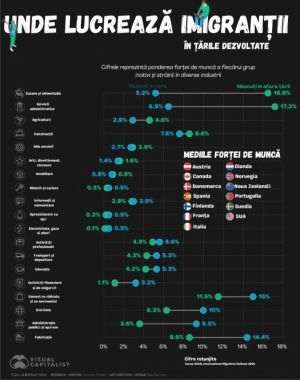At the level of the EU institutions, there is a high risk that certain lobbying activities escape the transparency "radar" regarding this activity, the European Court of Auditors (ECA) shows in a report published yesterday. The document states that the EU transparency register, which contains information on who lobbies the Commission, Parliament and Council, has positive elements and informs citizens about the potential influence of lobbyists, but has some shortcomings and gaps in information, which reduce the transparency of lobbying activities in the three largest EU institutions. In addition, lobbyists can bypass the register for a number of interactions through which they can still influence EU legislators.
That's why ECA auditors say that, in the absence of transparency mechanisms, lobbying activities can lead to undue influence, unfair competition and even corruption.
It is certain that lobbyists are required to be registered in the register only for certain meetings and activities (such as participation in hearings or expert groups). This led to the possibility that a non-governmental organization involved in the "Qatargate" scandal, which was not registered, could hold a conference at the European Parliament in June 2022. We recall that in December 2022, allegations emerged that Qatar had influenced illegally - or even allegedly bribed - MEPs to achieve foreign policy objectives ("Qatargate"). Since that date, Parliament has adopted several decisions on how to implement the register.
The ECA report also states: "The coercive measures that institutions can take to ensure that lobbyists comply with registration and disclosure requirements are not sufficient. On average, between 2019 and 2022, nearly 1,000 lobbyists were removed from the register each year for administrative reasons, and only six were removed following investigations."
The number of lobbyists registered in the EU transparency register has grown considerably since its creation, more precisely from around 5,500 in 2012 to around 12,500 in 2024. The register is voluntary and is based on an inter-institutional agreement initialed in 2021, which is not a binding legislative act. Therefore, sanctions cannot be imposed under this agreement, unlike lobbying provisions in some EU countries, which also cover a wider range of staff.
That's why ECA auditors criticize the fact that lobbyists only need to be registered for meetings with senior staff members and that only pre-scheduled meetings are reported. Spontaneous meetings, unscheduled phone conversations and e-mail exchanges do not need to be officially recorded, and lobbyists are not required to be registered in order to meet with employees of institutions below the director-general level (i.e. most employees). Although institutions are taking steps to increase transparency and encourage registration, leading to more information being published about meetings and activities with registered lobbyists, this publication is not systematic. In addition, background checks by lobbyists should also be improved, in particular due to the risk that NGOs funded by third parties may not disclose their funding sources, stating only that they represent their own interests or the collective interests of their members.
Regarding funding sources, 3,529 registered entities identified themselves as "non-governmental organizations, platforms, networks and similar entities", and of these 1,207 (34%) did not declare their funding sources, citing that "no represent commercial interests".
One third of the registered NGOs had declared themselves in this category.
In response to the ECA report, both the European Commission, the Council of the European Union and the European Parliament have responded, stating that they do not agree that all meetings with lobbyists should be recorded, as it is difficult to publish all unscheduled and spontaneous meetings .





























































